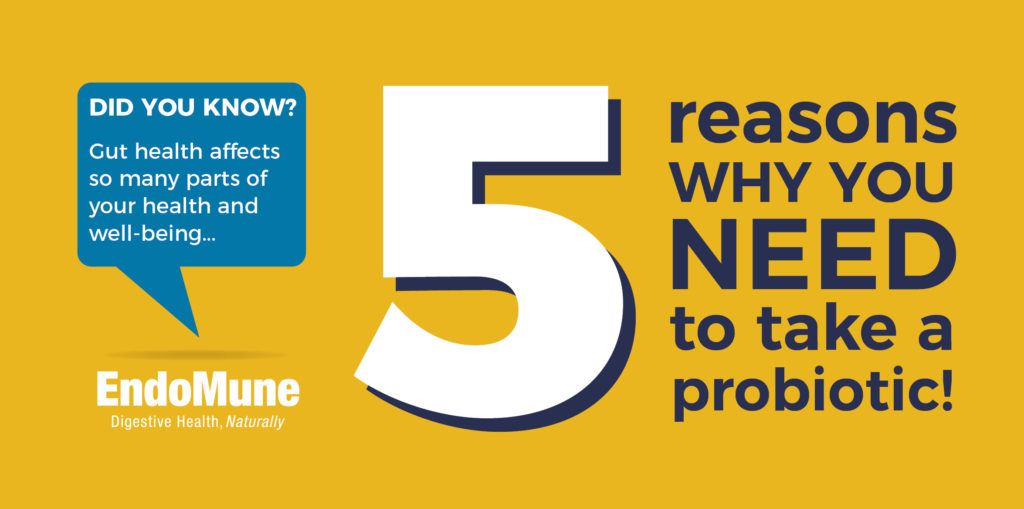Pregnant Moms Need Probiotics Too
Pregnant Moms Need Probiotics Too
We’ve talked a lot in the past about the steps Moms can take to give their babies a gut-healthy start in life, with natural childbirth and breastfeeding topping the list.
Good gut health plays an important role for new Moms too, especially when common problems like constipation, vomiting and nausea arise.
Moms have a safe, healthy way to treat those problems without a drug by taking a probiotic containing multiple strains from the Lactobacillus and Bifidobacterium families, according to findings based on new research appearing in the journal Nutrients.
Scientists from the University of California Davis monitored the gut health of 32 Moms-to-be over the course of 16 days. Each woman took a multi-strain probiotic for two six-day cycles and abstained for a pair of two-day cycles.
(Four of the probiotic strains used in this study are among the 10 strains of beneficial bacteria contained in EndoMune Advanced Probiotic.)
During the length of the study, a subset of the women who were monitored completed daily surveys that tracked the quality of their health while providing fecal samples before, during and afterward in order to determine if taking a probiotic really made a difference in treating their symptoms.
Overall, multi-strain probiotics significantly shortened periods of vomiting and nausea and reduced incidences of constipation, alleviating problems with hard stools.
The Probiotic Difference
How did multi-strain probiotics make such a notable improvement for pregnant women experiencing these symptoms?
Previous research suggests increases in sex hormones like progesterone (that influence the potential for pregnancy) lead to shifts in gut motility as well as the composition of the gut microbiome.
Researchers believe the big changes of sex hormones during the early stages of pregnancy alter the microbiomes just enough to contribute to the challenges new Moms experience, including nausea, constipation and vomiting.
There were some caveats to the study, namely comparing the use of probiotics to a placebo in a more formal, longer trial. However, scientists believe a formalized study could lead to greater findings of probiotic benefits.
These findings are a gut-friendly relief to the daily health of new Moms, and a comforting addition to existing research that has shown how probiotics reduce the incidence of preeclampsia and gestational diabetes mellitus.
If you’re a new Mom who is already juggling major life changes, the last thing you want to think about is dealing with constipation or nausea.
Taking a probiotic with proven strains of beneficial bacteria — plus a prebiotic — like EndoMune Advanced Probiotic can make a gut-healthy difference.
Resources
American Pregnancy Association
Gastroenterology Clinics of North America
The American Journal of Maternal/Child Nursing
Pregnant Moms Need Probiotics Too Read More »




